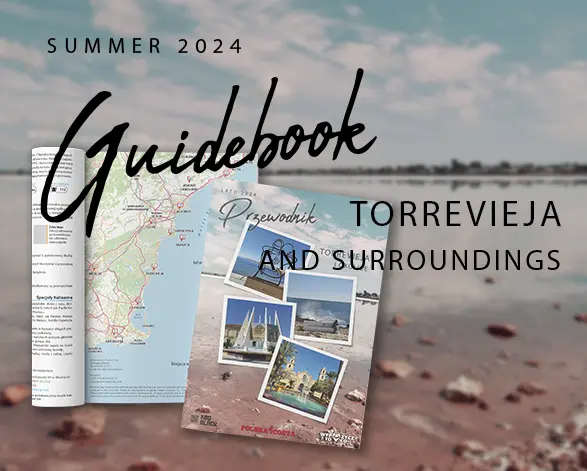
From wafer to turrón - how do Poles and Spaniards celebrate Christmas?
Christmas is one of the most important times of the year for both Poles and Spaniards. Although traditions in the two countries differ in many ways, you can also see a lot of similarities. It's a special time that brings people together around family, tradition and community. Below, we'll take a look at the similarities and differences in Christmas celebrations in Poland and Spain, which show the diversity of cultures and richness of customs.
Similarities in celebrating Christmas
One of the biggest similarities is the special value that both nations place on family gatherings. In Poland and Spain, Christmas is a time when everyone - even those who live far away on a daily basis - makes an effort to sit around the same table to celebrate this special season together. In Poland, the central moment is the Christmas Eve supper on December 24, during which families share a wafer, making wishes for each other. In Spain, on the other hand, families come together both on December 24, for an evening dinner known as Nochebuena and on Christmas Day.
Another common element is the Pasterka, a mass celebrated at midnight from December 24 to 25, called \“Pasterka\” in Poland. In both countries, this ritual emphasizes the spiritual aspect of the holidays and draws large numbers of the faithful to churches to celebrate the birth of Jesus together. While the Mass may be more solemn in Spain, and in Poland it is often an opportunity to sing carols together, the moment is significant for both nations.
the singing of carols** is another tradition that unites Poles and Spaniards. Carols in Poland are deeply religious in nature and are part of Christmas family gatherings and masses. In Spain, carols are also sung, known as \“villancicos,\” which often have a more joyful, dance-like rhythm. Spanish carols are often derived from folk music and bring an atmosphere of warmth and shared joy.
The tradition of building Christmas cribs is also cherished in both countries. In Poland, especially in the south of the country, nativity scenes are elaborately decorated and often take the form of miniature works of art. In Spain, on the other hand, nativity scenes are part of a larger tradition called \“Belén.\” Many Spanish cities and towns have impressive installations depicting biblical scenes, which often include entire panoramas. In both countries, this tradition unites residents and draws families together to admire the nativity scenes.
Differences in Christmas traditions
Although Poland and Spain share many similar traditions, the differences are equally pronounced. the time of gift-giving** is one of the most striking differences. In Poland, gifts are given on Christmas Eve, December 24, to emphasize the importance of the evening. In Spain, on the other hand, the main gift-giving day falls on January 6, the Feast of the Epiphany, known as \“Día de los Reyes Magos.\” On this day, Spanish children receive gifts from the Wise Men, which has a similar meaning for them as for Polish children on Christmas Eve.
Also the Christmas Eve menu distinguishes the two countries. In Poland, Christmas Eve is a fasting day, and the main dish is fish, especially carp. In Spain, on the other hand, meat and seafood are served, as a result of local culinary traditions. Although Spaniards do not have the tradition of breaking a wafer as they do in Poland, they often share turron - a sweet delicacy based on almonds, honey and sugar, which is an integral part of the Spanish Christmas tradition.
Another major difference is the Spanish Lotería de Navidad, or Christmas lottery, which takes place on December 22. This lottery has a great tradition and is one of the most anticipated events in Spain, where almost everyone buys a ticket with the hope of winning. Poland does not have a similar tradition, which makes the pre-Christmas atmosphere in the two countries different in the way they celebrate and look forward to Christmas.
the Epiphany Day**, celebrated on January 6, is also much more elaborate in Spain than in Poland. For Spaniards, it's a day of colorful parades, called \“Cabalgatas de Reyes,\” when processions of Three Kings pass through the streets of cities and children receive gifts. In Poland, Epiphany is a public holiday, but its celebration is usually limited to mass and possibly local parades.
Christmas in Poland and Spain, despite common elements, is a diverse holiday. Both countries emphasize the importance of family, spiritual aspects and local customs. Polish traditions focus more on Christmas Eve and the Lenten meal, while in Spain Christmas is a more extended period, culminating on Epiphany, when children receive gifts. Both countries place a high value on holiday traditions, which underscores how much culture and history influence the way we celebrate.








